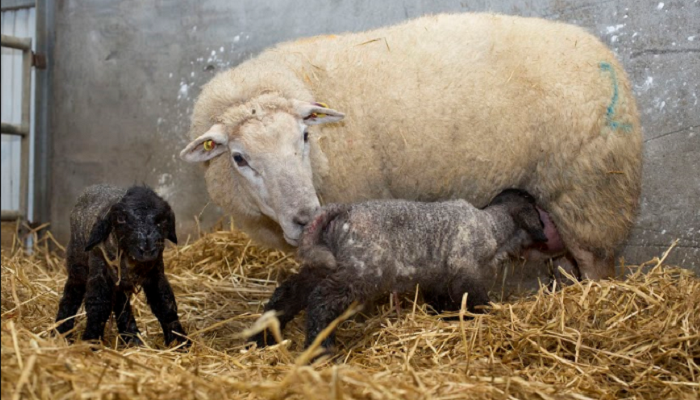22 September 2021
Prebreeding Vaccination against Toxo and Enzo in Sheep

Infectious abortion causes serious losses at farm level, with the loss of young ewes from the flock, veterinary bills, disposal of carcasses as well as a lot of stress. Eamonn Dempsey, Teagasc Advisor, discusses this and prebreeding vaccination against toxoplasmosis and enzootic abortion in sheep.
If the number of ewes that aborted including ewes that failed to lamb is greater than 2% an infection problem is likely.
Detecting the cause of abortion
It is important that the cause of abortion is identified by sending samples to the lab for analysis. Once the cause of abortion is known, a preventative approach must be taken in advance of the next breeding season, and one way of doing this is through vaccination. The two most common causes of abortion in sheep are Enzootic Abortion and Toxoplasmosis.
Enzootic abortion
Enzootic abortion has become more common in recent years with transmission from ewe to ewe via infected afterbirth and new born lambs may already be infected from mothers carrying the disease. If you do not have a case of enzootic abortion in your flock, then it appears suddenly, it is likely that you have purchased a ewe that was infected last year. When the infected ewe becomes pregnant, around 90 days into gestation, she goes on to abort and the fluids that pass out are now a source of infection for other ewes in the group. Your ewes if infected may go on to lamb down as normal that year, but infection will result in abortion the next lambing season. Bought in ewes or replacement ewe lambs should be quarantined and kept in a separate flock to contain the risk of infection. In the first year of a vaccination programme for protection against enzootic abortion, all breeding females should be vaccinated at least 4 weeks before mating and in subsequent years, any breeding females joining the flock should be vaccinated, immunity lasts for at least 3 years. Vaccination is highly recommended to reduce the number of enzootic abortions, and is also known reduce the number of abortions in latently infected ewes. With toxoplasmosis, sheep pick up infection from contaminated cat faeces in sheds, feed stores, bedding or from pasture. A single cat dropping can contain enough eggs to infect more than 100 ewes.
Toxoplasmosis
Toxo Abortion can occur during any stage of pregnancy once infected, with younger ewes more susceptible. The only way to effectively control toxoplasmosis is through vaccination, with the Toxo vaccine known to protect for at least two lambing seasons. The 2ml live vaccine is given into the muscle of the ewe within the 4 month period prior to mating, at least 4 weeks before mating. Your veterinary surgeon may recommend to just vaccinate replacements/younger ewes as older ewes are likely to have been exposed and have developed immunity. It is important to accurately diagnose the cause of abortion in sheep.
Less common causes such as E Coli, Camplylobacter, Salmonella, Listeria and Smallenberg Virus if diagnosed also have a significant impact on flock health. It is recommended to order your vaccines early so you will have sufficient vaccine to complete vaccination at the correct time pre breeding. Abortion can also be attributed to injuries or hurts suffered by the ewe during handling or at feeding time, so ensure everyone working with sheep on your farm know the correct way to handle and control sheep to minimise stress and avoid injury.
If you liked this article you might also like to read Purchasing rams or How to check the ewe is fit for breeding.
The Teagasc Sheep Specialists issue an article on a topic of interest to sheep farmers on Tuesdays here on Teagasc Daily. Find more on Teagasc Sheep here. For any further information or assistance contact your local Teagasc Office here: Advisory Regions.
